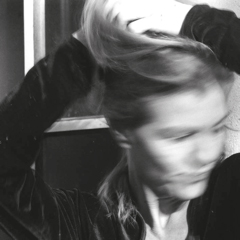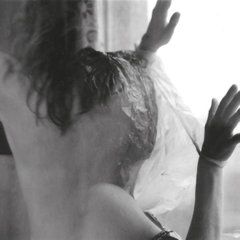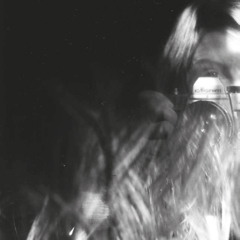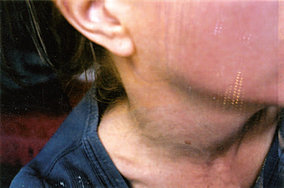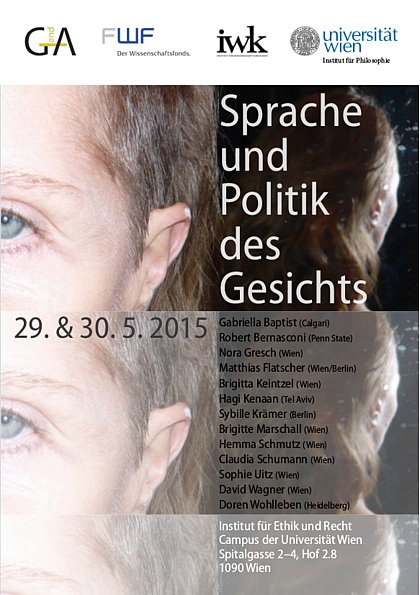Dissemination
International conference:
Levinas in dialogue with other philosophers
Department of Philosophy, University of Vienna,
23-24 September, 2019
The sympathy and popularity that Levinas’ thinking has in current philosophical debates cannot conceal the fact that reference to his thinking has either remained vague or receptive and exegetical. Unfortunately, this means it is not possible to recognize the richness of his approach and to make it fruitful for current topics.
Until now, the work of Levinas has received consideration in a context of unnecessary self-isolation--which would be programmatically different from the canon of the entire history of Western philosophy.
This assessment will be considered in a differentiated way during the conference.
In order to bring Levinas into dialogue with other philosophical approaches, central points of departure and equally important distinctions are sought and questioned, from the methodological, historical and critical perspectives. These dialogues are not only based in the hermeneutic purpose of sounding out systems of thought that help us better understand the foreign and the individual; they also seek to emphasize the relevance of Levinas in discussion with other approaches.
Invited Speakers:
Aminah Hasan-Birdwell (Furman University, U.S.A)
Robert L. Bernasconi (Penn State University, U.S.A.)
Paul Davies (Sussex University, GB)
Pascal Delhom (Europa-Universität Flensburg)
Peter Giannopoulos (University of Central Florida, U.S.A.)
Sophie Loidolt (TU Darmstadt, D)
Silvia Richter (Humboldt Universität, D)
François-David Sebbah (Université Paris Nanterre)
Sergeij Seitz (Universität Wien, A)
Peter Zeillinger (Universität Wien, A)
Brigitta Keintzel (Universität Wien, A)
"Bodies of resistance"
preparation of submission for collections section in London Journal of Critical Thought (LJCT)
(eds. Brigitta Keintzel/Sophie Uitz, University of Vienna)
Abstract:
Resistance is fundamentally dependent on the presence of physical bodies – a circumstance most apparent in events of resistance such as demonstrations, strikes, gatherings, sit-in’s, or gestures, and the expression of emotions. This means that there is not only an existential understanding of resistance, but also an ethical and a political one. All connotations are intimately interwoven with material and physical conditions of the body. This many-layered, but non-hegemonic framing of resistance is the starting point of our considerations. Turning to resistance as a resource for understanding the cohesiveness of subjectivity and society, this collection discusses the following questions: What are the specific conditions under which ethical-political resistance does occur? In what way is such resistance bound to the corporeality of resistant subjects? What’s up for discussion is how resistance can be described not merely as an existential-bodily phenomenon, but also in what way a physical and material understanding of resistance is linked to socio-political and ethical sphere. Our thesis is that the body is not just a tool or an instrument, it entails a broader horizon of meaning. Attention to the body is especially important for the analysis of resistant practices. And it is the corporeality that makes subjects so vulnerable and dependent on the condition of our existence. Through these characteristics, the body turns out to be a seismograph for social tensions. A social understanding of corporeal resistance reveals a twofold meaning: dependency and agency. Post/Structuralistic approaches (critique) have helped us to understand how social norms and power formations open up possibilities for resistance, but also can prevent them. Here, it is important to note that resistant agency cannot be thought without relating it to dependency and support, insofar as no body can act without a certain kind of dependency. By revisiting the corporality of resistance we gain new perspectives on what is at stake in the act of a resistance rooted in social and physical vulnerability. If we assume that resistance shows itself not only in reason, but also in the body connected with the Other, then it is a paradox of resistance that the resistant body exposes itself to vulnerability through its practice. Revealing the latter, this means that the resistant body affirms life and at the same time exposes itself to vulnerability and also to death. Many examples can be made to literature, philosophy, and history, such as Sophocles’ Antigone, Martin Luther King’s Speech, Pussy Riot, etc.. What is at stake is the very physical (and memorable) space of resistance that needs to continuously be claimed, defended and fought for. As Arendt has pointed out in regards to political action, neither are we born acting subjects nor can we take public space for granted. Both political action and appearance are conditional, and, with Levinas arguing, must be perceived again and again anew in the perspective of the Other.
"Kant’s Law, reinterpreted by Levinas"
at International Workshop "New Directions in Levinas Studies", at Penn State University (US), by invitation of Robert Bernasconi, Peter Giannopolous, and Kaiti Newmann.
"The desire for redemption, the desire for the law: Rosenzweig and Kant"
IRG (International Rosenzweig Society) Symposium: Back to Redemption, 17-20 February, 2019
Van Leer Jerusalem Institut, Israel
Abstract:
In this lecture, I ask for common presumptions to bring two different subject areas into context. For this dialogue, I refer to Kant and Rosenzweig. I will show that Rosenzweig's assumption that the presupposition of desire is not primarily feeling and experiencing but thinking, does not only affirm but also challenge the Kantian understanding of the desire for the law of reason.
"Memory of the Camp and the Future of Human Rights"
at Symposium: Human Rights. Feminist and Gender-Philosophical Perspectives. Cooperative Symposium
November 16 -17, 2018
University of Vienna, Department of Philosophy and Society for Women in Philosophy (SWIP Austria)
Abstract:
With Franz Rosenzweig, it can be argued that human rights are not primarily an abstract principle of thought, or a logical construct that guides our thinking in a seemingly timeless fashion. Rather, they are experiential facts that we experience time and again anew, also in their sexual diversity.
Publication in preparation (2019).
"The Indispensability of Gender: Luce Irigaray’s Thinking of Difference. What does it mean to think of Universalism without Neglecting the Gender Difference?" (Lecture in German)
at Nächte der Philosoph/Innen. Da philosophisch-künstlerische Festival.
1-18 October, Vienna (Austria)
Invitation of Prof. Robert Bernasconi (Penn State University) for a lecture at University of Vienna:
"Emmanuel Levinas, Social Vulnerability, and Complicity with Racism"
"Resistant Bodies: On resistance and its corporeal challenges"
Joint stream organization and conference presentation
at London Conference in Critical Thought, University of Westminster, UK
(together with Sophie Uitz, University of Vienna)
Abstract:
Resistance is as much topical as it is fundamental to the every day life. Its meaning and relevance spans all disciplines and continues to call for attention in political and critical social-philosophic debates. Turning to resistance as a resource for understanding the cohesiveness of subjectivity and society, this stream will address the following questions: In what way is resistance bound to the corporeality of resistant subjects? In what way is resistance bound to remembrance and witnessing?
This stream invites to think and analyze manifestations of resistance as both reflective on a given status quo, and transforming this status via bodily strategies. In order to unfold its reflective and transforming capacity, we put forward a framing of resistance as the interplay between execution, perception, and interpretation: a resisting subject is being perceived and interpreted by others and unfolds its capacity – to change a given state – in this very interplay between multiple agents. The resistant subject is not self-contained, but relies on the witnessing and interpretative presence of others. Resistance, it can be argued in line with that, is fundamentally dependent on the presence of physical bodies – a circumstance most apparent in events of resistance such as demonstrations, strikes, gatherings, sit-in’s, or gestures (raising of a fist) and the expression of emotions.
Notions of resistance have undergone significant change within a continental European history of ideas. Against the background of European modernity and its collapse in the Shoah, we identify a two-fold approach to resistance, which shall serve as point of reference and of departure for this stream‘s investigation into resistance: Enlightenment has produced notions of resistance rooted in agency and self-contained action, tying resistance to progress and history. As such, resistance manifests as act with the capacity to constitute collectivity and solidarity, centered around mutual recognition. The reality of the death camps has produced a different understanding of resistance, emphasizing withdrawal, refusal and the power of remembrance. Resistance has manifested in the bearing of testimony, memory, the refusal to forget and ultimately in the act of survival.
We seek to facilitate an interdisciplinary dialogue that conceptualizes and explores resistance as an act involving physical bodies, bound to biological life, seen within a political frame. The theme of this stream will be to discuss the corporeality of resistance along both historical and contemporary resistant subject relationships, and we explicitly welcome contributions that analyze particular instances of present day manifestations, by reference to documents and media of all formats.
Article submission at Rosenzweig Yearbook:
"Dauer und Augenblick: Rosenzweigs Verständnis vom Und"
Visiting Professorship at the University of Cagliari (Italy)
Summer term courses in Cagliari include:
"From Dialogue Philosophy to Thinking of Alterity",
"Hegels Phenomenology of Spirit in discussion with French Philosophy"
"Dialectic approaches to Gender (Hegel), dialogical approaches to Gender (Rosenzweig), dualistic approaches to Gender (Irigaray), triadic-psychoanalytic approaches to Gender (Melanie Klein)
"And as Chance and Limit"
at Sapienza Università di Roma – Pontificia Università Gregoriana (International Franz Rosenzweig Conference)
Presentation: "Usage of Language: how it influences our thinking?"
Mentees of the current mentoring programme muv 7 (Gender Equality and Diversity Unit, University of Vienna) presented their academic works in the event "muv - Science at its best".
Download presentation "Usage of Language"
"Chiasmus von Sehen und Hören"
at Lange Nacht der Philosophinnen, Kath. Priv. Univ. Linz
"Ästhetische Selbstvergewisserung"
at Ruhr Universität Bochum, Germany (31th, International Hegel Congress)
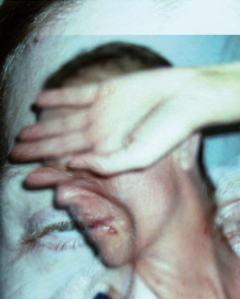
- © Claudia Schumann
Text contribution to artist Claudia Schumann's publication "are you sure to exist"
(Schlebrugge Verlag)
Claudia Schumann’s images relate a complex overlapping between destruction, hindrance and confirmation. Her photographs do not vibrate to a better, other, newer, more beautiful world, but are vibrant with the insight that the body’s opulence consists in its nudity, frivolity and fragility. This opulence reveals itself just as unconditionally to the spectator as it then recedes from the spectator’s gaze. This tightrope dance between her force of presentation and reticent withdrawal cannot be fully comprehended through observation or analysis, remaining a font of irritation and mystery.
And this irritation constitutes an abrupt, dissonant defect in the conceptual automatism that demands the transformation of the seen into a narrative. In Schumann’s images, countenance and narrative are not synchronized. The images’ materiality disturbs; they cannot be retrieved into a synchronizable story. Instead, they invite the observer to interweave this glance at asymmetry together with the observed image, thus bringing dichotomies between reality, life and death, appearance and perception, limits and rejection, cliche and schism to the limits of their capacities.
Schumann’s images remain indebted to the body—the female body. The body marks a reference point reaching beyond the limits of the art work we are observing. This exhibited, depicted, rearranged and sensually distorted body compels the observer to accept it as a touchstone (criterion) for observing the objects surrounding it. The separation of image and reality is linked not only to a message but to an accusation. The observation of this female body is not a bid for or coquetterie with the voyeuristic (masculine) gaze, but instead disturbs the observer within the complacent security of his observation, even as it enchants him. In the act of observing these images, the bridges that could span sight with self-realization and
enabling calibration with the Other are not crossed. This gap is what lends Claudia
Schumann’s images their mysterious quality—a scintillating semantics of the fragile,
vulnerable countenance.
[...]
Download full text:
"Bleeding Images" (english)
"Bilder, die bluten" (german)
Hosting of Workshop with Luce Irigaray at University of Vienna, October 20, 2015
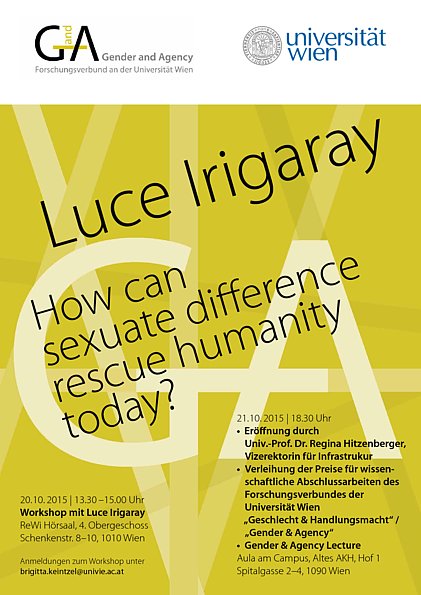
Radio Feature on the Conference "Sprache und Politik des Gesichts"
Download from Philosophische Audiothek
Participation at Levinas Philosophy Summer Seminar on "Eros and Ethics" at John Cabot Univeristy in Rome/Italy, July 6-10, 2015, sponsored by The Levinas Center, and Institute of Jewish Thought and Heritage, University at Buffalo (SUNY), Buffalo, New York, USA.
Hosting of "Language and Politics of the Face" (Vienna Conference)
with Gabriella Baptist (Cagliari), Robert Bernasconi (Penn State), Matthias Flatscher (Wien/Berlin), Nora Gresch (Wien), Hagi Kenaan (Tel Aviv), Sybille Krämer (Berlin), Brigitte Marschall (Wien), Hemma Schmutz (Wien), Claudia Schumann (Wien), Sophie Uitz (Wien), David Wagner (Wien), Doren Wohlleben (Heidelberg)
Accompanying text to the conference:
Eyes of the Face, Eyes of the Law (PDF)
Research Stay at the University of Pennsylvania
Participation at SWIP Austria – Society for Women in Philosophy Conference, JKU Johannes Kepler-Universität Linz, December 11-12, 2014
Paper:
The Political Notion of Love and Memory (abstract)
Sigmund-Freud-Vorlesungen: Vom Unbewussten III-IV, Wiener Psychoanaltyische Akademie, Vienna, November 14-15, 2014
Participation at First German–Latin American Hegel Conference, Buenos Aires, May 19-21, 2014, Pontificia Universidaad Católica in cooperation with Fernuniversität Hagen
Paper:
The Notion of Love in Hegel and Levinas (introductory remarks)
Participation at 30th International Hegel Congress at the University of Vienna
Paper:
Knowledge, Preliminary Knowledge, and Nescience - Hegel's dispute with Kant (abstract)
University of Vienna
Faculty of Philosophy and Education
Sensengasse 3A
Room 2.09
A-1090 VIENNA
T: +43-1-4277-46079
F: +43-1-4277-9464

